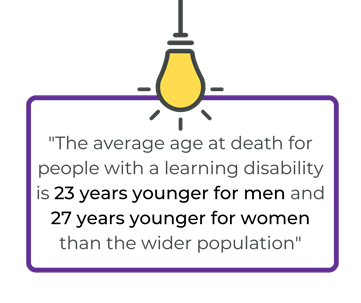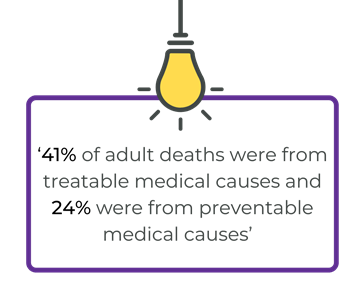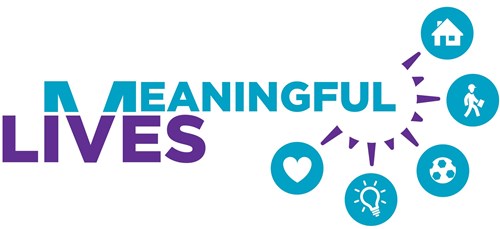LeDeR is a service improvement programme for people with a learning disability and autistic people. Established in 2017 and funded by NHS England and NHS Improvement, it's the first of its kind.
LeDeR works to:
- improve care for people with a learning disability and autistic people
- reduce health inequalities for people with a learning disability and autistic people
- prevent people with a learning disability and autistic people from early deaths
Research has shown that on average, people with a learning disability and autistic people die earlier than the general public, and do not receive the same quality of care as people without a learning disability or who are not autistic.
LeDeR reviews deaths of people with a learning disability and/or who are Autistic, to see where there are areas of learning, opportunities to improve, and examples of excellent practice. From reviews within Essex this information is then used to improve services for people living with a learning disability and autistic people.
The Dept of Health commissioned the CIPOLD report (Confidential Inquiry into premature deaths of people with learning disabilities) which when published in March 2013 identified the lack of reasonable adjustments provided to people with a learning disability (especially in accessing clinic appointments and investigations) as a contributory factor in a number of avoidable deaths. They also found that 38% of people with a learning disability died from an avoidable cause, compared to 9% in a comparison population of people without a learning disability (Heslop et al. 2013, (Heslop et al., 2013).
Following on from the CIPOLD report the LeDeR program was started in May 2015 and established a requirement that all deaths of people with a learning disability should be reported to LeDeR and potentially reviewed to ascertain whether the death could have been avoided, to identify any shortcomings in practice and make recommendations regarding health and social care practice and areas for improvement.
There is limited data available with regard to deaths of people who are autistic but for the first-time since 2021, deaths of adults who have a diagnosis of autism but no learning disability will be included in the process. LeDeR reviews now take place, for all autistic people over the age of 18 who have been told by a doctor that they are autistic and have this written in their medical record. All reviews of people who are autistic without a learning disability will be focussed reviews initially to develop data and learning. This change will take place during 2021 not from 1 June 2021.
Healthcare professionals have a legal duty to provide reasonable adjustments for disabled people (Public Health England, 2016). This can include providing easy-read information, avoiding medical jargon or longer appointment times.



